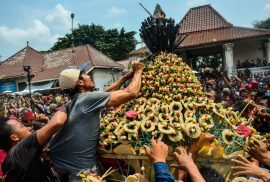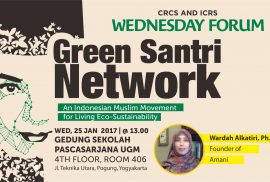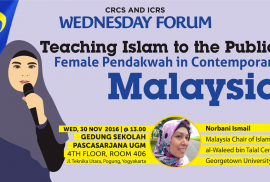Ambiguitas dan Toleransi dalam Tradisi Masyarakat Muslim
Afkar Aristoteles Mukhaer – 25 September 2024
Sepanjang sejarah peradaban Islam, perdebatan tafsir selalu hadir dengan saling menghargai perbedaan pendapat.
Realitas pemahaman dan praktik ajaran Islam sebagai aturan universal masih ambigu. Meski tuntunannya termaktub dalam pegangan dasar—Al-Qur’an dan hadis—interpretasinya selalu terbuka untuk dibahas dari perspektif dan ideologi tertentu. Cendekiawan dan ulama kerap berbeda paham atas interpretasi ajaran Islam sehingga mendorong terbentuknya ragam tafsir dan tarekat dalam Islam.










